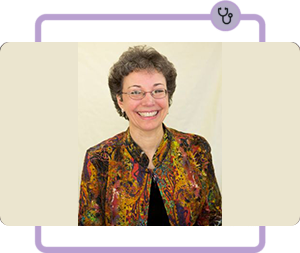About Us


HeartLight Healing Arts is the solo medical practice of Dr. Pamela Compart, a developmental pediatrician and integrative/functional medicine physician. In 2001, Dr. Compart founded HeartLight Healing Arts as a multidisciplinary practice that incorporated a variety of practitioners from traditional medicine, integrative/functional medicine, and a number of related fields such as chiropractic, acupuncture, massage, etc. For 15 years, Dr. Compart managed this practice while also maintaining a full developmental pediatrics and functional medicine practice.
In early 2017, Dr. Compart opted to change to a solo practice. Her goal was to have more time to focus on her true passions, which are taking care of patients, teaching, and writing. She continues to work in consultation with other like-minded healing practitioners in the community to facilitate consultation and referrals in order to achieve optimal health and behavioral outcomes for her patients. Working with practitioners from other fields has allowed Dr. Compart to expand her knowledge base in ways that would not have been possible in solely traditional medical settings.
 Pamela J. Compart, M.D.
Pamela J. Compart, M.D.
Dr. Compart received her medical degree from Case Western Reserve University. She completed a pediatric residency at Children's National Medical Center in Washington, D.C. (now Children's National Hospital) and was selected for an additional year as a Chief Resident. After a 3-year fellowship training program in behavioral and developmental pediatrics at the University of Maryland School of Medicine, Dr. Compart was on the academic faculty there for 2 years. She ultimately founded HeartLight Healing Arts in 2001.
Dr. Compart is board-certified in Developmental-Behavioral Pediatrics. She lectures locally and nationally on traditional and functional medicine approaches to the treatment of autism and other developmental disorders. She is a co-author of two books: "The Kid-Friendly ADHD and Autism Cookbook" and "The ADHD and Autism Nutritional Supplement Handbook." She treats children with a variety of behavioral and developmental disorders. She has a particular expertise in and passion for treating children with autism spectrum disorders.

In my treatment of patients, I try to bring the best of all that I have learned from all aspects of medicine. As a traditionally trained behavioral and developmental pediatrician, I remain committed to performing thorough evaluations in order to formulate accurate diagnoses and develop a foundation of traditional treatments to support a given child's development and behavior. These may include recommendations for special education support and specific therapies, for example. I view these as "outside-in" therapies, ways that we can help the child by changing the environment or providing treatments from outside the body to help the body and brain function better.
For some patients, the traditional approach is sufficient. However, for many children, traditional treatments alone do not allow them to reach their full potential. This may be true because the child's internal biochemistry is out of balance or has deficiencies. For example, a child may be deficient in vitamins or minerals. He/she may not be able to adequately get rid of toxins, both from the environment and those that are generated by the body's own metabolism. Something as simple as constipation may affect behavior, not solely due to discomfort, but due to incomplete elimination of toxins, which then interfere with optimal brain function. The intestine may be imbalanced, having insufficient variety or numbers of beneficial bacteria and/or excessive amounts of problematic yeast or bacteria. If the internal workings of the body are not optimal, it is not possible for the child's brain to work at its best and, therefore, not possible for the child's behavior or learning to be at their best, regardless of the quality of special education programming or individual therapies. This requires treatment from "the inside out." By combining "outside in" and "inside out" treatments, the hope is that a child will then be able to reach his or her true potential.
I also believe that children with behavioral or developmental challenges are often wise in their own ways and have much to teach us. The parents who are raising these children also have great wisdom to share from their experiences. Optimal healing requires a true partnership between the physician, parents, and child, honoring the expertise and knowledge each brings to the treatment table. With open ears and an open heart, I often learn as much or more from my patients as they learn from me.

HeartLight Healing Arts is the developmental pediatrics and integrative/functional medicine practice of Dr. Pamela Compart. Dr. Compart is a board-certified developmental-behavioral pediatrician, in medical practice for over 30 years. She is also an integrative physician who practices functional medicine. She combines treatments from each of these disciplines in order to achieve the best possible outcomes for her patients.
As a behavioral and developmental pediatrician, Dr. Compart performs diagnostic evaluations and recommends traditional treatments that may include further biological investigations (e.g., labs), therapeutic interventions (e.g., speech therapy, occupational therapy), and possible educational support strategies. Medications may also be recommended as appropriate or necessary. Traditional treatments may not be sufficient for optimal outcomes, especially if children have imbalanced biochemistry or other medical issues that are not addressed at the same time. This is where functional medicine can also be very helpful.
Functional medicine is an approach to healing that looks beneath the surface of the symptoms to get at their root causes. The hope is that by correcting the root causes, symptoms will improve. The beauty of functional medicine is that it does not require a definite diagnosis or label in order to be helpful. The goal is to improve the child's functioning, regardless of the label. This means that functional medicine can be potentially helpful for a wide variety of behavioral and developmental challenges, including autism spectrum disorders, Attention Deficit Hyperactivity Disorder (ADHD), anxiety, oppositional behaviors, etc. Many children do not "fit" into a specific diagnosis. For example, they may have some, but not all, of the symptoms required for a formal diagnosis, such as autism or ADHD; however, their symptoms are causing challenges for them or their families and require treatment. A functional medicine approach focuses on alleviating the symptoms by looking for their causes and does not need a label.
Dr. Compart's initial approach to evaluating underlying contributing factors to behavioral or developmental challenges is to ask two basic questions:
A functional medicine approach involves giving what is needed and eliminating things that may be interfering. While the questions are simple, the treatments may become complex. Each child is different, and the treatment approach needs to be individualized to that child. A search of the internet may result in numerous potential approaches for a given diagnosis or label. However, those approaches are for the "generic" child with a label, not necessarily your particular child. What works for one child may not be the right treatment for another. Dr. Compart spends a lot of time with parents and with the child in order to get the most thorough picture of the challenges facing that child and family in order to develop a comprehensive, individualized treatment plan. By focusing on traditional and functional medicine aspects of symptoms and incorporating the parents' wisdom and insights, children have an increased opportunity to reach their highest potential.For more information about Dr. Compart's approach and how appointments are done, please click here to go to the Appointments page.
